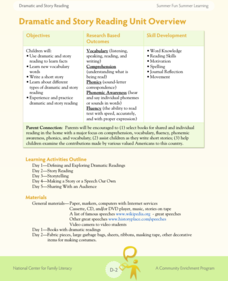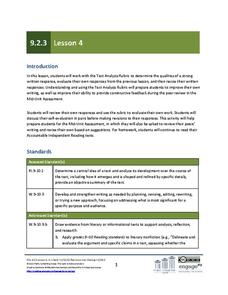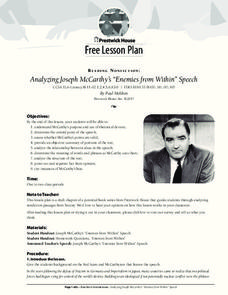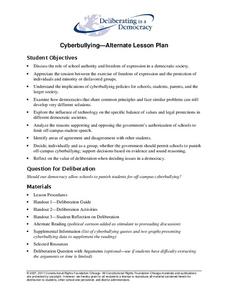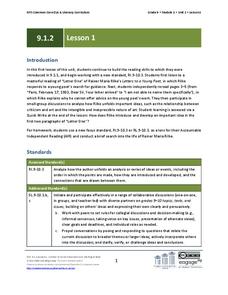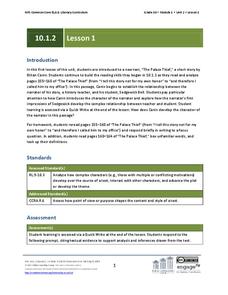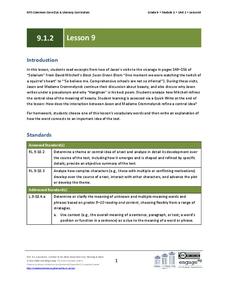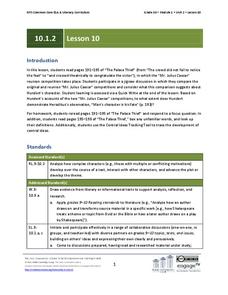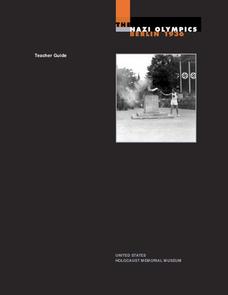National Center for Families Learning
The Summer Fun Summer Learning Dramatic and Story Reading Unit
What's the difference between story reading and story telling? Participants in a summer enrichment program learn all about the difference as they listen to famous speeches, engage in dramatic readings, and craft their own short stories...
EngageNY
Grade 10 ELA Module 1: Unit 2, Lesson 8
Now what? Class members continue their close reading of Ethan Canin’s short story “The Palace Thief,” focusing on Hundert's feelings about his retirement, and consider what these feelings reveal about his character.
EngageNY
Grade 9 ELA Module 2, Unit 3, Lesson 10
Did Bernie Madoff fit the profile of a Ponzi schemer because, as Diana Henrique contends in an excerpt from her The Wizard of Lies: Bernie Madoff and the Death, he “did not fit the profile of a Ponzi schemer”? Huh? Groups begin their...
EngageNY
Grade 9 ELA Module 2, Unit 3, Lesson 8
Class members continue reading "How Bernard Madoff Did It" and annotate how the author refines his idea that the Madoff scandal grabbed the attention of a public fascinated with crime stories.
EngageNY
Grade 9 ELA Module 2, Unit 3, Lesson 4
What are the qualities of a strong written response to a prompt? Class members use the provided text analysis rubric to self-assess their responses to their homework assignments to prepare for the mid-unit assessment.
Ms. Mariely Sanchez
New Teacher’s Survival Guide
An amazing amount of information is packed into this 44-page packet. Everything from how to avoid first day jiggers to planning first day activities, from personal and classroom safety tips to how to break up fights, from classroom...
Prestwick House
Reading Nonfiction: Analyzing Joseph McCarthy's "Enemies from Within" Speech
Looking for a lesson that teaches class members how to analyze nonfiction? Use Joseph McCarthy's famous "Enemies from Within" speech as a instructional text. Worksheet questions direct readers' attention to the many historical...
Deliberating in a Democracy
Cyberbullying—Alternate Lesson Plan
Should schools be permitted to punish young scholars for off-campus cyberbullying? After reading a passage that details statistics about cyberbullying and Supreme Court rulings about schools' ability to limit student speech,...
Ontario
Reading Informational Text
Learning to recognize the importance of the features of information text (i.e., titles, subtitles, endnotes, sidebars, etc.) is the focus of a reading activity designed for middle schoolers. Learners examine how these text features...
National Center for Families Learning
The Summer Fun Summer Learning Poetry Unit
Focus on poetry this summer to enhance those comprehension, fluency, and language skills with a set of resources intended to explore different types of poetry, specifically lyric poetry. The daily activities contain differentiation ideas...
EngageNY
Grade 9 ELA Module 1, Unit 2, Lesson 1
Where does a writer find inspiration? "Go into yourself," says Rainer Maria Rilke in "Letter One" from Letters to a Young Poet. Readers of Rilke's letter to Franz Xaver Kappus examine the words and figurative language Rilke uses to...
EngageNY
Grade 10 ELA Module 1: Unit 2, Lesson 1
The complex relationship between a teacher and his student takes center stage in an instructional activity that asks readers to pay close attention to how author Ethan Canin introduces his characters and how he develops the character of...
K5 Learning
My Little Kitty
Can the small cat catch the rat? Find out in a short passage designed for first graders, complete with four comprehension questions that address details from the text.
Novelinks
Man's Search for Meaning: K-W-H-L Strategy
Prior to reading Viktor Frankl's Man's Search for Meaning, class members use the provided worksheet to list what they know about the Holocaust, what they want to know, and how they will find the information they seek. After...
Fluence Learning
Writing About Literature: Nature in the Writings of John Muir and Emily Dickinson
As an assessment of their skill in crafting a compare and contrast essay, class members read and compare the portrayals of nature in excerpts from naturalist John Muir's My First Summer in the Sierra and from poet Emily Dickinson's...
EngageNY
Grade 9 ELA Module 4, Unit 1, Lesson 14
As a mid-unit assessment, writers use evidence from the supplemental reading articles "Globalization," "Our Addiction to Fast Fashion Kills," and "Bangladesh Factory Collapse: Who Really Pays for Our Cheap Clothes?" to draft an argument...
University of Arkansas
Assessment and Discussion
"Without concerned citizen action to uphold them (human rights) close to home; we shall look in vain for progress in the larger world. . ." Eleanor Roosevelt's comment is used to set the stage for the conclusion of a five-lesson unit...
World Intellectual Property Organization
Learn from the Past, Create the Future: Inventions and Patents
3D printers, selfie sticks, smart watches. GPS, self-driving cars, YouTube. Imagine life without inventions. Believe it or not, these items were all invented in the last 10 years. Inventions, and the inventors responsible for them,...
EngageNY
Grade 10 ELA Module 1: Unit 2, Lesson 4
Can a life gone wrong be blamed on a single childhood incident? Hundert, the narrator of "The Palace Thief," and readers struggle with this question as they ponder events in Ethan Canin's story.
EngageNY
Grade 9 ELA Module 1, Unit 2, Lesson 7
Readers analyze David Mitchell's techniques for introducing and developing the mystery surrounding Madame Crommelynck in the "Solarium" chapter of his novel Black Swan Green.
EngageNY
Grade 9 ELA Module 1, Unit 2, Lesson 9
Class members continue their discussion of David Mitchell's Black Swan Green, focusing on how the author uses the conversation between Jason and Madame Crommelynck to refine his central idea of the meaning of beauty.
EngageNY
Grade 10 ELA Module 1: Unit 2, Lesson 11
Is identity unchanging? Do events in our childhood forever influence our character? Groups ponder these questions as they examine Ethan Canin’s short story “The Palace Thief.”
EngageNY
Grade 10 ELA Module 1: Unit 2, Lesson 10
Is man's character his fate? Can actions change character? To track the development of the central ideas in Ethan Canin’s short story “The Palace Thief,” groups compare Hundert's actions in the original "Mr. Julius Caesar" competition...
US Holocaust Museum
Nazi Olympics: Berlin 1936
The Olympics are about more than sports—at times, the games are also a place of racism and prejudice! Pupils investigate the 1936 Olympics in Berlin, Germany. They analyze the meaning behind the materials included in the United States...
